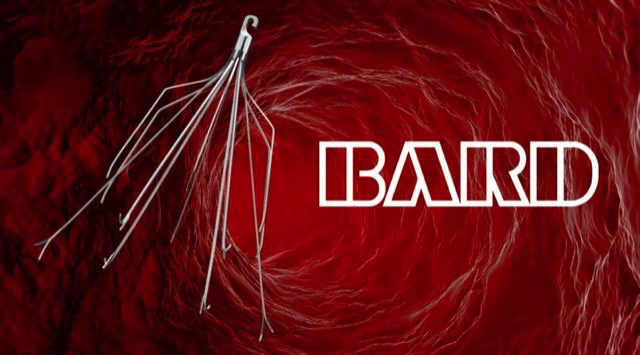More than 600 Bard IVC filter lawsuits are pending in court, with all federally filed cases consolidated in the District of Arizona in August 2015.
A new case, filed on May 5, 2016, has now joined the MDL in Arizona. The plaintiff in this case name as defendants C.R. Bard and Bard Peripheral Vascular, Inc., and seek class action status for their case, hoping to represent thousands of individuals who received a Bard IVC filter and then suffered serious injuries as a result.
The case was consolidated with the MDL on June 21, 2016. The plaintiffs seek in excess of $5 million in damages.
Plaintiffs Accuse Bard of Aggressive Marketing Despite Negative Clinical Data
The plaintiffs in the case are from a number of different states, including Florida, Colorado, Arizona, West Virginia, California, Pennsylvania, Massachusetts, Missouri, Ohio, Maryland, and Illinois. All were implanted with a Bard IVC filter—a medical device that is implanted in the inferior vena cava, the main vein that goes from the legs back to the heart and lungs. The IVC filter is a small, cage-like device designed to trap blood clots before they can travel to the lungs and cause pulmonary embolism (PE, or blood clot in the lung).
The plaintiffs received a variety of filters, including the Bard G2, the Bard G2 Express, the Bard Recovery, the Bard Eclipse, the Bard Denali, and the Bard Meridian. All plaintiffs in this case still have the filters inside of them—none have been removed.
The plaintiffs alleged Bard of aggressively marketing their filters, “despite negative clinical data.” According to their complaint, Bard became aware of numerous events in which the Recovery filter fractured, migrated, or perforated the inferior vena cava, causing blood clots, serious injuries, and even death, yet failed to respond with appropriate actions or warnings. In July 2004, Bard knew there were at least 12 filter migrations resulting in four deaths and at least 17 reports of filter fracture, six cases of which involved one of the “legs” of the filter penetrating the heart.
Bard continued to market the Recovery until 2005, when the G2 filter, an updated design, was approved by the FDA.
Bard Updated Designs Still Plagued with Problems
The Bard G2, however, didn’t seem to perform much better than the Recovery. It was also linked to a high incidence of fracture, and in a review of the FDA database for the years 2004 through 2008, Bard IVC filters were found to be responsible for 50 percent of all adverse events, 64 percent of all occurrences of IVC filter migrations, 69 percent of all vena cava wall perforations, and 70 percent of all filter fractures.
These problems were associated with injuries like cardiac arrhythmia, fluid around the heart, hemorrhage, and death. Bard produced the Eclipse, which was FDA-approved in January 2010. The only difference between it and the G2 was that it was electropolished, which was supposed to increase fracture resistance. The new design continued to suffer from similar problems, and Bard released the Meridian in August 2011. The only difference between it and the Eclipse was a caudal anchoring system, which was supposed to reduce the risk of the filter migrating toward the groin. Bard received FDA approval for the Denali in May 2013, which included a caudal and cranial anchoring system to reduce filter migration. The plaintiffs claim that the Denali was still vulnerable to the same defects.
Plaintiffs Seek Medical Monitoring
In May 2014, the FDA issued a safety communication concerning IVC filters, and recommended that doctors should remove them within 29 to 54 days after implantation, as long as the danger for pulmonary embolism had passed.
The plaintiffs seek damages for medical monitoring, in addition to seeking payment for damages, because they were exposed to a significantly higher risk of injury and death from Bard’s IVC filters than they would have if the filters had been designed without defects.
Source: newyork.legalexaminer.com





Be the first to comment on "Plaintiffs Seek Class Action Status and $5 Million in Bard IVC Filter Lawsuit"